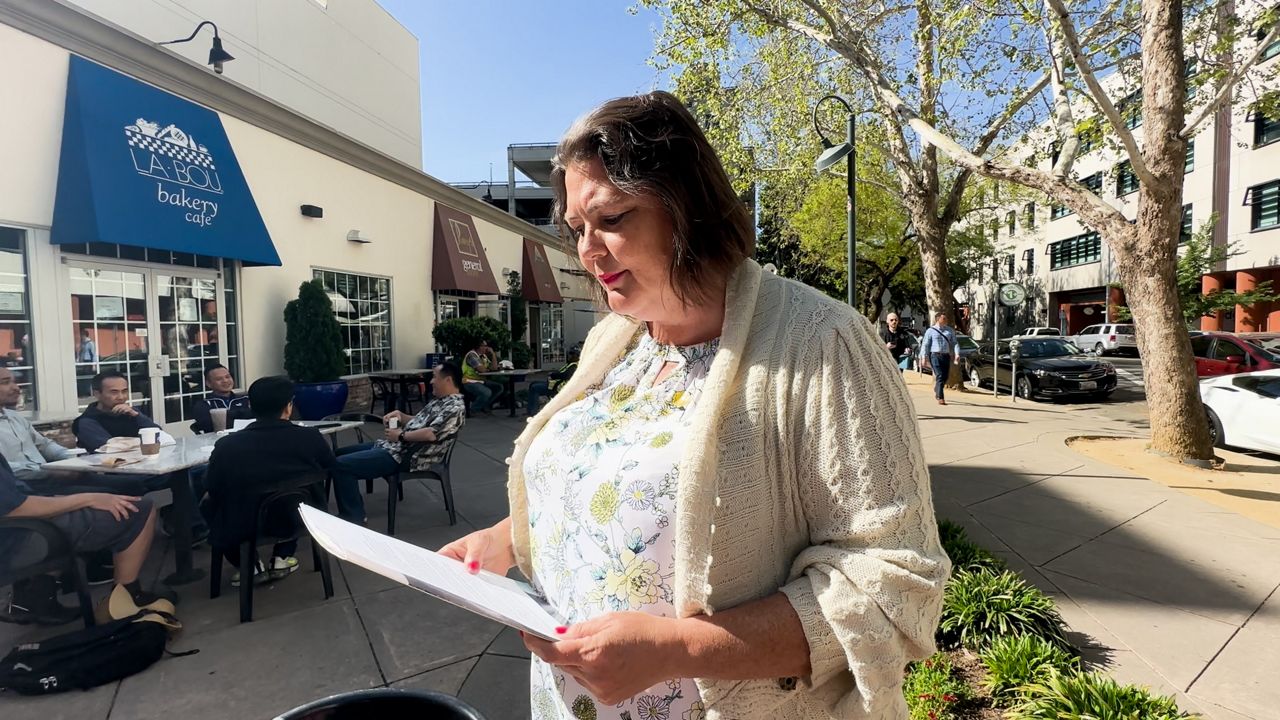[ad_1]
SACRAMENTO, Calif. — There is a renewed effort to modernize California’s behavioral health laws as legislators and mental health advocates continue to fight for the many people who continue to die on the streets after failing to receive the proper care.
State Senator Susan Talamantes Eggman knows all too well the struggles it takes to get people suffering from serious mental illnesses the help they deserve, having lost both an aunt and a childhood best friend to mental health conditions.
“Both of them ended up dying, basically, with their rights on, they died with their rights fully intact, but died nonetheless, of not being able to care for themselves,” Eggman said.
Eggman, a former social worker, says both her aunt and friend because they did not meet the criteria to receive involuntary treatment under the Lanterman-Petris Short (LPS) Act, which hasn’t been updated since 1967.
“At that time, we were warehousing a lot of people in big institutions and not treating them the way they should be treated. And we didn’t have the treatments, we didn’t have the medications that we have now,” Eggman explained. “And so in 1967, we said that, you know, we are not going to hold people for extended periods of time and just warehouse them, that people should be able to be treated in the community and make sure that the public stayed safe.”
Under LPS, the current criteria to be considered gravely disabled is if a person cannot provide basic personal needs of food, clothing, or shelter or be a harm to themselves or others.
Eggman believes the current criteria is failing to help the people who need treatment the most. To bring change, the senator authored Senate Bill 43 to reform the LPS Act by expanding the definition of ‘gravely disabled’ to lower the barrier to entry for conservatorship and forced treatment.
“I think for everything, there is a season and I think this is the time to change LPS. We have the opportunity. The state has been [sic] very purposeful — this administration — on addressing the chronically mentally ill who also happen to be homeless a lot of times. So I think people understand it needs to happen,” Eggman said.
SB 43 would broaden the definition of ‘gravely disabled’ to include people suffering from either a mental health disorder or a substance use disorder who are at substantial risk of serious harm.
Serious harm would be situations where individuals have failed to attend to personal or medical care or have failed to attend to self-protection or personal safety. The bill also would stipulate that people who cannot provide themselves adequate shelter or clothing could be entered into a conservatorship and undergo forced treatment.
Updating California’s behavioral health laws is what someone like Lee Davis has been fighting for. The Oakland resident has overcome a bipolar disorder that led to her suffering through two psychotic episodes.
“Some of my experiences are totally humiliating, and are completely embarrassing to talk about,” Davis notes. “I thought I could fly, almost considered jumping off a building. I did a lot of things that, just by purest luck, did not mane me or have me injure somebody else.”
Davis credits involuntary treatment as what saved her life and allowed her to make a recovery.
“I felt like I had it all figured out. And it took involuntary treatment for me to get what I needed to become stabilized. And to be able to then actively make decisions for myself and my recovery, I just wouldn’t have had the opportunity,” Lee said.
SB 43 has received strong bipartisan support in the state legislature, both progressive Democrats and conservative Republicans have signed on as coauthors and have spoken of the need for change California’s behavioral health system.
“When you have James Gallagher and Scott Weiner saying the same thing, you know, you’ve landed on something that we can all agree on,” Eggman said.
Opposition to SB 43 has come from civil liberties and disability rights organizations that argue force treatment violates people’s basic rights.
“SB 43 won’t expand access to care, it won’t divert people with mental illness from our criminal justice system — it will only perpetuate the revolving door of homelessness and institutionalization — involuntary criteria does not need to be expanded,” said Samuel Jain, a Senior Policy Attorney for Disability Rights California.
Though Davis sees the current system as failing people’s basic rights.
“Involuntary treatment, I know a lot of people consider it coercive or taking away personal freedoms, but I don’t feel that I was free in a psychotic state. It was very much my brain was hijacked.” She said.
SB 43 recently passed through the Senate Appropriations Committee and now faces a floor vote before it makes its way to the Assembly.
Let Inside the Issues know your thoughts and watch Monday through Friday at 8 and 11 p.m. on Spectrum News 1.
[ad_2]
Source link


